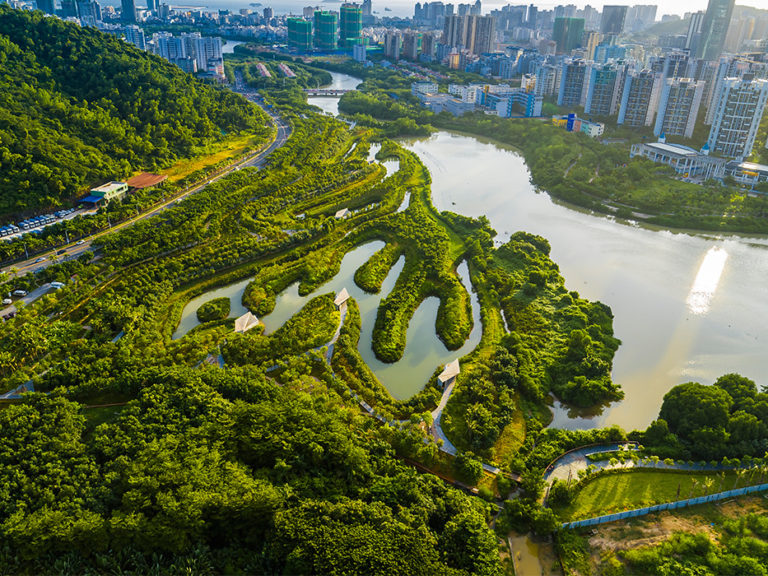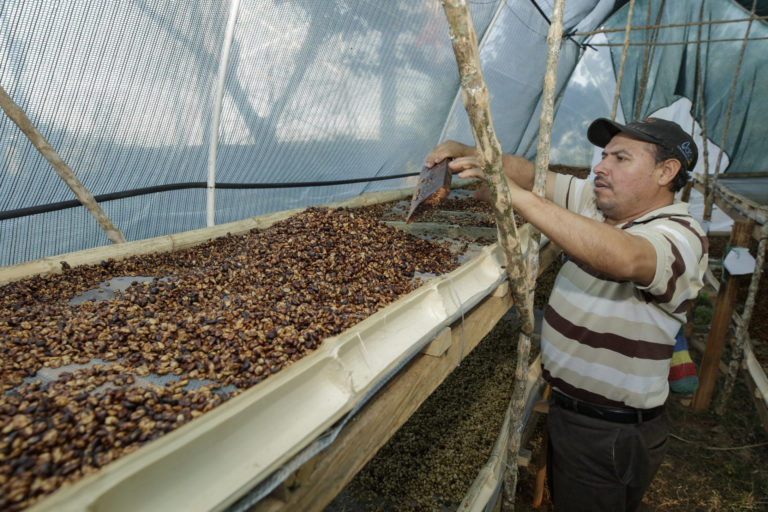El Salvador, home to around six million people, is the most densely populated country in Central America. With a history of being repeatedly affected by drought, intense rain, cyclones and the El Nino Southern Oscillation (ENSO), the isthmus connecting North and South America is recognised for its vulnerability to the adverse effects of climate change.
Since 2012, successive years of drought in El Salvador have been jeopardising water and food security, resulting in the first declaration of a water shortage emergency in 2016. Still depleting rapidly due to climate change, poor services, pollution and unregulated commercial exploitation, El Salvador’s water reserves were the lowest in the region in 2019. One study estimates that within 80 years El Salvador will completely run out of water.

Vulnerability to extreme weather events underscores Central America’s exposure to the dangers of climate change. These include earthquakes, tropical storms, cyclones as well as hurricanes, among others. In May 2020 tropical storm Amanda descended on El Salvador, activating over 150 landslides and 20 major floods in the capital, San Salvador. The storm devastated crop production, destroyed roads, electrical lines, and nearly 30,000 homes. President Nayib Bukele declared a 15-day state of emergency, stating that the storm had caused $200m worth of damage.
Related Articles: Strengthening Climate Services for Agriculture in Latin America | Building Resilient Climate Smart Agricultural Systems
Severe weather conditions pose a great threat to the country’s coffee production and consequent exportation, once a major source of income. According to The Week, the Salvadoran Coffee Council claims that exports have fallen by more than half in the last decade. The industry’s decline is the outcome of a multitude of issues; diminishing coffee prices, decrease in investment, agricultural pests and undoubtedly climate-related effects. The International Food Policy Research Institute estimated that by 2050, climate change could affect El Salvador’s coffee sector more than anywhere else in the world.

As climate change threatens to tip the nation deeper into crisis, city officials and farmers, working alongside the United Nations Environment Programme (UNEP), have launched an operation to revive 1,150 hectares of forests and surrounding coffee plantations. The construction of buildings, road paving and prolonged droughts in San Salvador have prevented rainfall from being absorbed into the ground.
The design, “CityAdapt,” is grounded on the hypothesis that vegetation can draw vast amounts of water into the soil; limiting erosion, reducing floods and recharging groundwater supplies during droughts. CityAdapt aims to improve infiltration in the area by creating ditches which copy natural drainage networks provided by streams and rivers. The barriers, which will be built in the forest and nearby coffee plantations, will be made of stone, wood and a Spineless Yucca plant found in the region — all of which helps to alleviate erosion. Once decomposed, organic material retained in the ditches will also be used as fertiliser. The project hopes to build over 62km of infiltration ditches in San Salvador.
According to UNEP, the project has already reduced the risk of flooding for around 16,000 people in San Salvador. This figure is expected to reach 115,000 by the project’s completion in 2022. The innovative method, which works to harness ecosystems to protect people and the environment from the impacts of climate change, has been coined Ecosystem-based Adaptation. The project also operates in Mexico and Jamaica.
Ecological drainage systems, which include “replacing concrete pavements with wetlands, green rooftops and rain gardens,” are being used in 16 cities across China to tackle flooding and are also set to be piloted in 30 other cities.
Known as “Sponge Cities,” these nature-based solutions aim to ensure that “80% of the urban land in each city includes sponge like features.” The design is also being pursued in Berlin in preparation for a projected increase in heat waves and rainstorm, as the effects of climate change worsen.

Editor’s Note: The opinions expressed here by Impakter.com columnists are their own, not those of Impakter.com. — In the Featured Photo: Dried out shrimp tank in El Salvador. Featured Photo Credit: Christian Aid.









